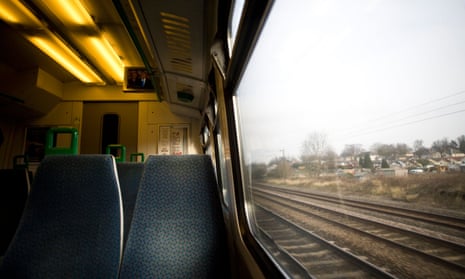Commuters and travellers have been urged to strike up conversations with vulnerable people near railway tracks as part of a campaign to prevent suicide.
Small Talk Saves Lives aims to give the public the confidence to trust their instincts and take action if they see someone who may be at risk.
The campaign, which has been launched by Samaritans, the British Transport Police, Network Rail and train operators, promotes the message that suicidal thoughts can be temporary and interrupted by a simple question.
The initiative commissioned a survey of 5,000 passengers, which found that the majority were willing to play a role in preventing suicides.
More than four out of five (83%) passengers said they would approach someone who may be suicidal if they knew the signs to look for, what to say and that they would not make the situation worse. Nearly nine out of 10 (89%) thought someone in need of support would find it hard to ask for help.
Warning signs could include a person standing alone and isolated, looking distant or withdrawn, staying on a platform a long time without boarding a train, or displaying something out of the ordinary in their behaviour or appearance.
Small Talk Saves Lives stresses there is no single sign or combination of behaviours that mean a person is suicidal, but if passengers spot something that “doesn’t feel right” they should take action by starting a conversation or alerting rail staff or the police.
About 273 people died in suicides on Britain’s railways in 2016/17, according to Office of Rail and Road figures.
Ian Stevens, who manages Network Rail’s suicide prevention programme, said: “If it were your loved one, a daughter or son, husband or wife who was going through an emotional crisis, wouldn’t you hope that somebody took the time to stop and ask if they were OK?”
Ruth Sutherland, the chief executive of Samaritans, said suicide was everybody’s business and claimed “any one of us could have an opportunity to save a life”.
She said the skills to save lives on the railways could be applied to many other situations and she hoped the campaign started “a much wider conversation about how suicide is preventable”.
Samaritans told the story of Sarah Wilson, who was 28 when she decided to take her own life. “Someone talking to me and showing they cared about me helped to interrupt my suicidal thoughts and that gave them time to subside. The more that people understand that suicide is preventable, the better,” she said.
- In the UK, Samaritans can be contacted on 116 123. In the US, the National Suicide Prevention Lifeline is 1-800-273-8255. In Australia, the crisis support service Lifeline is on 13 11 14. Other international suicide helplines can be found at www.befrienders.org.
